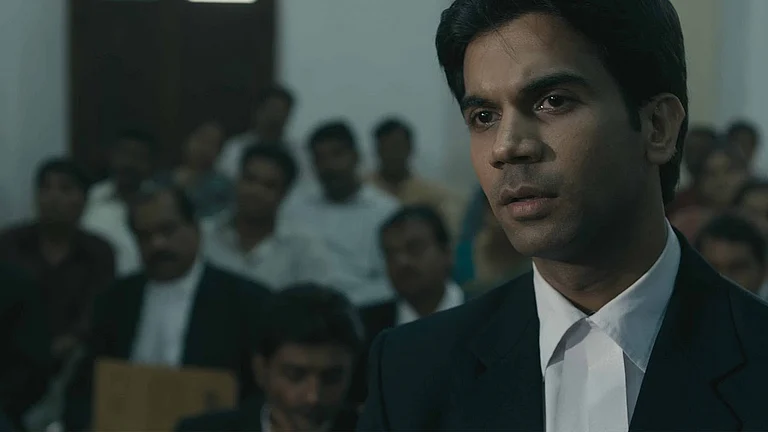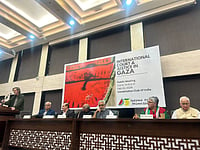“It is critical in a technological civilisation that the humanities be protected if society is going to retain its soul,” wrote Leland Miles, a US-based professor, in a recent article titled ‘Keeping the liberal arts and humanities alive’.
At a time when the world is grappling with the Fourth Industrial Revolution, students who are management graduates believe that educational institutions need to convey the value of liberal arts better, as ‘soft skills’ obtained through subjects taught in humanities modules help build social connections, understand socio-political issues and make a larger sense of the world.
“I think any kind of liberal arts or performing arts keeps both your mind and body in its peak state. One can use this (quality) in their academic life as well. Although this cannot be a prime focus of a B-school, it is still important we have (such) activities to nurture these skills,” says 28-year-old Ananyak Saha, who graduated with an MBA degree from the Institute of Management Technology (IMT), Ghaziabad in 2018.
Saha founded and headed a photography club and movie club during his one-year stint at the IMT campus in Dubai. “In the photography club, we were in charge of covering events and managing the college’s corporate events. In the movie club, we would screen movies on a big screen which other students would attend, and following the movie, they would be asked to speak about what the movie taught them,” he says and adds, “I think the best part about club activities in a B-school is networking and finding people of similar mindsets and interests. Although there is ample opportunity to network during the various events that happen in a B-school, an informal setting such as a liberal arts club can be a refreshing and pleasing experience within the daily grind.”
Along similar lines, 29-year-old Shreya Desai, an MBA graduate of ICFAI Business School (IBS), Pune, believes that liberal and performing arts in B-schools help students in honing management skills in ways that go beyond hardcore problem-solving skills. “My college had several co-curricular activities throughout the year. In fact, the college had the students organise, make arrangements and market these activities and get other students rolling. Not only did it give students a breather from the mundane routine of lectures but also taught them more about event management, time management, resource management, project management and social media management, and all this in practical circumstances. And mind you, these are important qualities any leader should have; with these, they get better at management and setting examples for the new students or juniors,” says Shreya, who was the chief editor of Prerana (Magazine) Club that used to publish a quarterly magazine on behalf of the college. It celebrated business with a focus on literature.
“For B-Schools to succeed, they must give their students the tools and space to think critically and explore areas of interest outside of the norm. This is mainly due to the fact that B-schools cultivate future managers of the world, and it is crucial for institutions to establish an environment where students can indulge in self-exploration or just enhance their abilities in order to encourage the total growth of the mind and body,” says Shreyashi Mondal, a second-year student from Xavier Institute of Management, Bhubaneswar. Mondal is the coordinator of SPIC MACAY (the Society for the Promotion of Indian Classical Music and Culture).
Empathy as a bridge
“Automation is on the rise and as a result, building soft skills is the need of the hour. Crafting relationships through empathy is the solution to common contemporary business problems,” says Jayita Chakraborty, a 26-year-old MBA graduate from Symbiosis Institute of Media and Communications (SIMC), Pune and currently a student of Communications at Texas Tech University, United States.
Dance has been an integral part of Chakraborty’s identity and being part of the dance club at SIMC immensely helped her build interpersonal skills. “Through the performing art club, I could converse easily and connect to people from diverse cultures and backgrounds. Furthermore, it helped me cope with stress and be prepared for stressful environments that are common in the management world,” adds Chakraborty.
Adding to that, Shreyashi, a classical dancer, says that irrespective of the skills required for their position, a corporate leader must be emotionally intelligent. “The liberal arts and performing arts are concepts where you put all those theoretical lessons learned in the classroom to use in the real world and learn how to collaborate with others and keep your word. Students have opportunities to encounter novel ways of thinking through performing arts that goes beyond academic knowledge. Since everyone in the team works together to complete each of these tasks, everyone’s sense of empathy is increased. The liberal and performing arts increase empathy, which is one of the most crucial traits for a corporate leader to possess and succeed.”

Shreyashi believes that B-schools must have a quarterly event celebrating art and culture so that all students get a chance or “are encouraged to participate” as these activities help them to be more empathetic and thus resilient, too.
“It is true that B-schools have numerous clubs. But they sure don’t include all the students, maybe 60 per cent of the students. The rest either don’t get selected or aren’t interested at all. They only learn theoretical management subjects,” Shreyashi adds.
Augmenting business curriculum
Business-related issues deal with primarily human beings. The current average B-school curriculum is more based on theories which do no justice in representing the complexities that arise when dealing with human beings. This is a major part of business administration. While the quantitative aspects are covered well, qualitative aspects are not.
“Business covers consumer behaviour to an extent, but that doesn’t really prepare students to deal with folks who may behave differently on different occasions, despite being affected by the same stimuli. This lack of awareness becomes especially difficult in the Indian academia scenario, vis a vis B-schools, as a lot of students are engineering graduates whose previous curriculum does not leave much room for variation in results due to aspects like economic changes, geopolitical occurrences or psychological factors,” says Ellora Chanda, an HR professional and an MBA graduate from IMT Ghaziabad.
She adds that young business professionals believe that augmenting the curriculum of B-schools by adding subjects from the humanities domain would probably help students grow into well-rounded professionals, who are better equipped to deal with the ever-changing scenario that is the world of business. The existing MBA curriculum could definitely increase its value by including subjects from the humanities and arts fields. “But I would rather prefer indulging in activities concerning these subjects in an MBA college rather than theory,” says Ellora.
She is of the view that humanities should be mixed with other important business topics, such as behavioural, quantitative and economic sciences, and that one without the other is lacking. “MBA programmes should be revamped in a way that humanities and liberal art courses are added to the basic disciplines in behavioural, quantitative and economic sciences,” Shreyashi adds.
Citing an example, Chakraborty tells that MNCs like Coca-Cola (its Ulu-Ulu campaign, for instance) are going local with their marketing. She further says, “It is only possible to be successful with such campaigns when one has in-depth knowledge of culture, history and the rhetoric of it all. This is the proof of the pudding.”
However, business graduates also feel that although subjects in humanities and art fields are quite necessary for any sort of educational setting, this has never been the focus of a B-school. “Optional courses are always welcome. We used to have talks from established HR professionals, mostly on conflict resolution in corporations. A background or exposure to humanities can be a good benefit here,” says Saha.
Yet, if hard skills account for the technical know-how to perform a job, soft skills from the liberal and performing arts make up for everything else.
(This appeared in the print edition as "Lessons in Liberal Arts")













.jpg?auto=format%2Ccompress&fit=max&format=webp&w=376&dpr=2.0)












